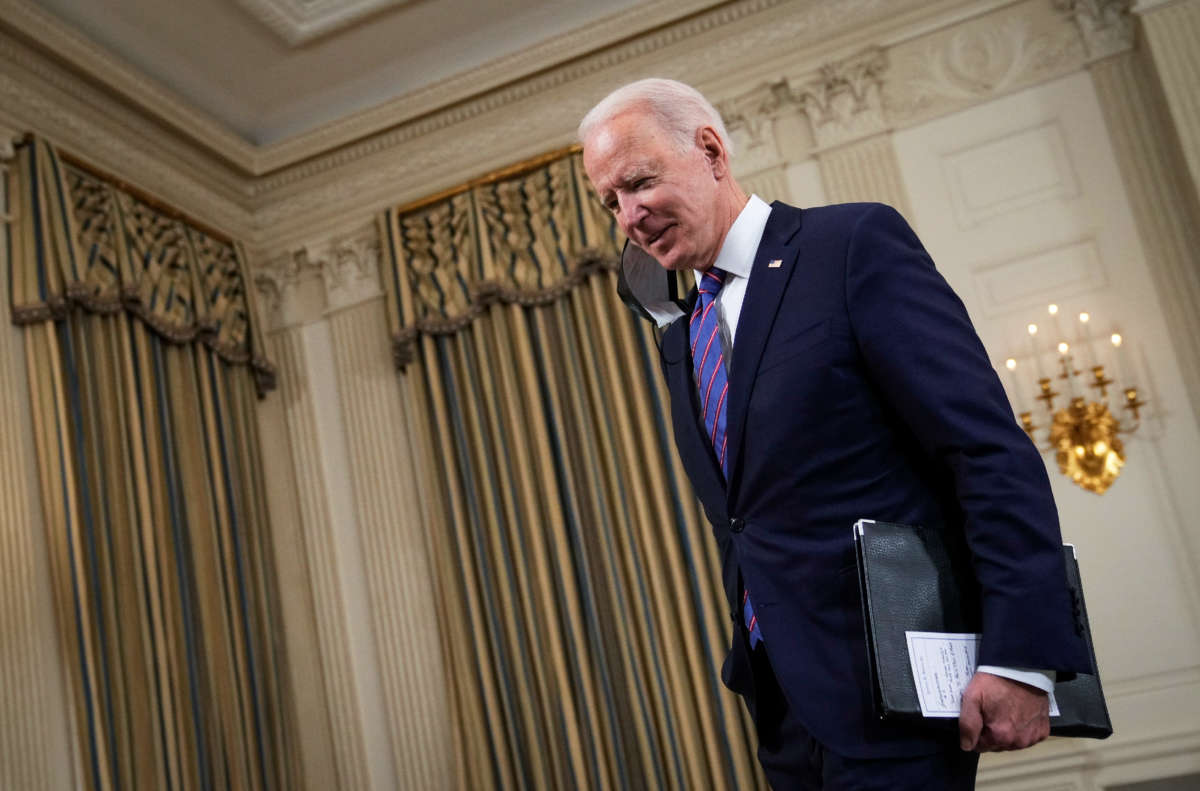President Joe Biden and Democrats in Congress have reportedly won a major ruling from the Senate parliamentarian, granting them the ability to pass more of their agenda without the need to defeat a filibuster from Republicans.
Elizabeth MacDonough, who serves as the parliamentarian, is reportedly willing to accept an interpretation of an obscure budget rule to let Democrats use previously passed legislation, enacted through the reconciliation process, to bypass the standard 60-vote filibuster threshold that Republicans were threatening to use to block future legislation.
That rule, Section 304 of the Congressional Budget Act of 1974, allows lawmakers to make amendments to reconciliation bills that have already passed and become law. As the reconciliation process lets legislators skip the filibuster rule, amendments to legislation that passed under that process would similarly be allowed to bypass it as well.
“The Parliamentarian has advised that a revised budget resolution may contain budget reconciliation instructions,” a spokesperson for Senate Majority Leader Chuck Schumer said. “This confirms the Leader’s interpretation of the Budget Act and allows Democrats additional tools to improve the lives of Americans if Republican obstruction continues.”
It’s unclear how far Democrats can go to utilize the ruling — whether they can have broad leeway to include amendments unrelated to the original bill, or if there will be stricter limits, for example. “Some parameters still need to be worked out” over how Democrats can proceed, that same spokesperson said.
Nevertheless, the interpretation from the parliamentarian gives lawmakers new options to pass legislation in the coming weeks and months, with just a simple-majority vote in both houses of Congress.
While allowing lawmakers to skip a filibuster, the reconciliation process cannot be used more than a couple of times in a given legislative session. Ordinarily, the Senate may only use reconciliation bills to bypass the 60-vote threshold from a filibuster just once per fiscal year. As Democrats have already used reconciliation to pass their COVID economic relief package for the current fiscal year (which ends on September 30), they could feasibly only do so again on October 1 or later under current rules.
However, because of this new ruling from the parliamentarian, Democrats can now potentially push through an unlimited number of amendments to their reconciliation package, which was recently passed. In addition to being able to pass more of their agenda while avoiding Republican obstruction in the Senate, Democrats can also theoretically pass aspects of their infrastructure package faster than originally anticipated by amending the COVID economic relief law rather than waiting until later this year to use reconciliation again.
The rule will allow Democrats to break Biden’s infrastructure package into two distinct sections and not worry about needing to use reconciliation for one or the other. One part of that package will reportedly focus on traditional infrastructure projects, while the other will center its attention on popular progressive policies, including expanded childcare assistance, free community college, and more affordable housing, to name just a few.
Join us in defending the truth before it’s too late
The future of independent journalism is uncertain, and the consequences of losing it are too grave to ignore. To ensure Truthout remains safe, strong, and free, we need to raise $24,000 by the end of today. Every dollar raised goes directly toward the costs of producing news you can trust.
Please give what you can — because by supporting us with a tax-deductible donation, you’re not just preserving a source of news, you’re helping to safeguard what’s left of our democracy.
